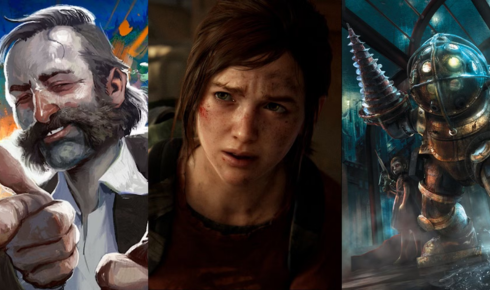Interactive Storytelling: How Video Games Are Becoming the New Novels

Once considered mere entertainment, video games are now increasingly recognized as powerful storytelling platforms. They combine the immersion of cinema, the depth of literature, and the agency of choice—creating a narrative experience unlike any other medium.
As technology and writing mature within the industry, video games are emerging as the next frontier in storytelling.
The Shift from Linear to Player-Driven Narratives
Classic games like Super Mario Bros. and Tetris were light on story. Gameplay was king. But as technology advanced, developers began weaving narratives into every level, every objective, and every character.
Games like Mass Effect, Detroit: Become Human, and Disco Elysium take things further by making the player a co-author. Your choices shape the world, determine the ending, and often define your morality. It’s no longer just about watching the story unfold—it’s about living it.
Emotional Investment Like Never Before
Books may make you cry, and films might leave you breathless. But in games, you don’t just witness emotions—you cause them. The sorrow of losing a companion in The Walking Dead, the moral tension in Spec Ops: The Line, or the complex father-daughter bond in The Last of Us all hit harder because you’re not just watching—you’re participating.
Games leverage this emotional interactivity to create deep, personal connections between player and character.
Game Mechanics as Storytelling Tools
Interestingly, the way a game plays can also tell a story. In Papers, Please, you experience the bureaucratic monotony of border control through repetitive paperwork. In Hellblade: Senua’s Sacrifice, audio hallucinations simulate the protagonist’s psychosis. These mechanics don’t just support the story—they are the story.
Even chance-based or casual games, often overlooked in narrative discussions, sometimes hide clever storytelling layers. Some platforms like bumi22 login have started blending light narrative frameworks with strategic play, proving that even non-traditional formats can engage users through storytelling cues.
Bridging Cultures and Perspectives
Games have also become cultural bridges. Titles like Never Alone, developed with Indigenous Alaskan communities, or Black Book, rooted in Slavic folklore, bring underrepresented stories into the global gaming space. These narratives go beyond entertainment—they educate and inspire.
And because games are interactive, they foster empathy. When you play as someone from a different background, facing unfamiliar challenges, you don’t just understand their story—you feel it.
The Future: AI, Procedural Narratives, and Beyond
As AI and procedural generation become more sophisticated, we’re inching toward games that craft dynamic, personalized stories. Imagine a future where your game responds to your decisions not with pre-written branches, but with real-time narrative adaptation.
Games may one day offer endless, evolving sagas tailored to individual players—experiences no two people ever share in quite the same way.
Final Thought: Choose Your Own Legacy
Storytelling is no longer a one-way street. With games, you’re not just the reader—you’re the protagonist, the author, and sometimes even the world-builder.
So whether you’re diving into a hundred-hour RPG or casually exploring interactive platforms like bumi22 login, remember: you’re not just playing a game. You’re living a story—your story.





